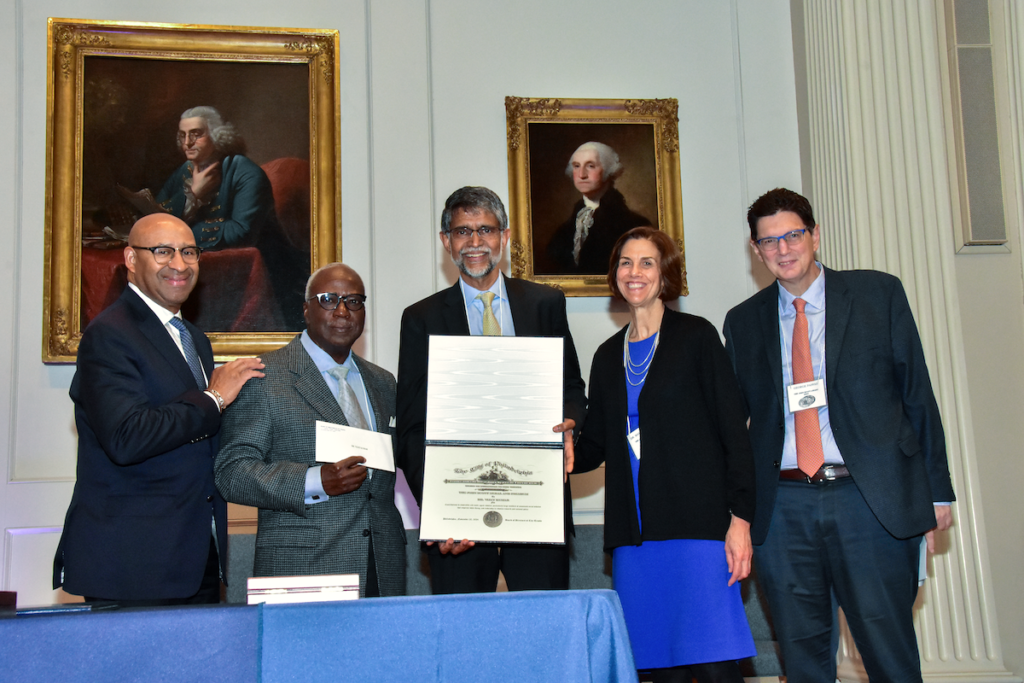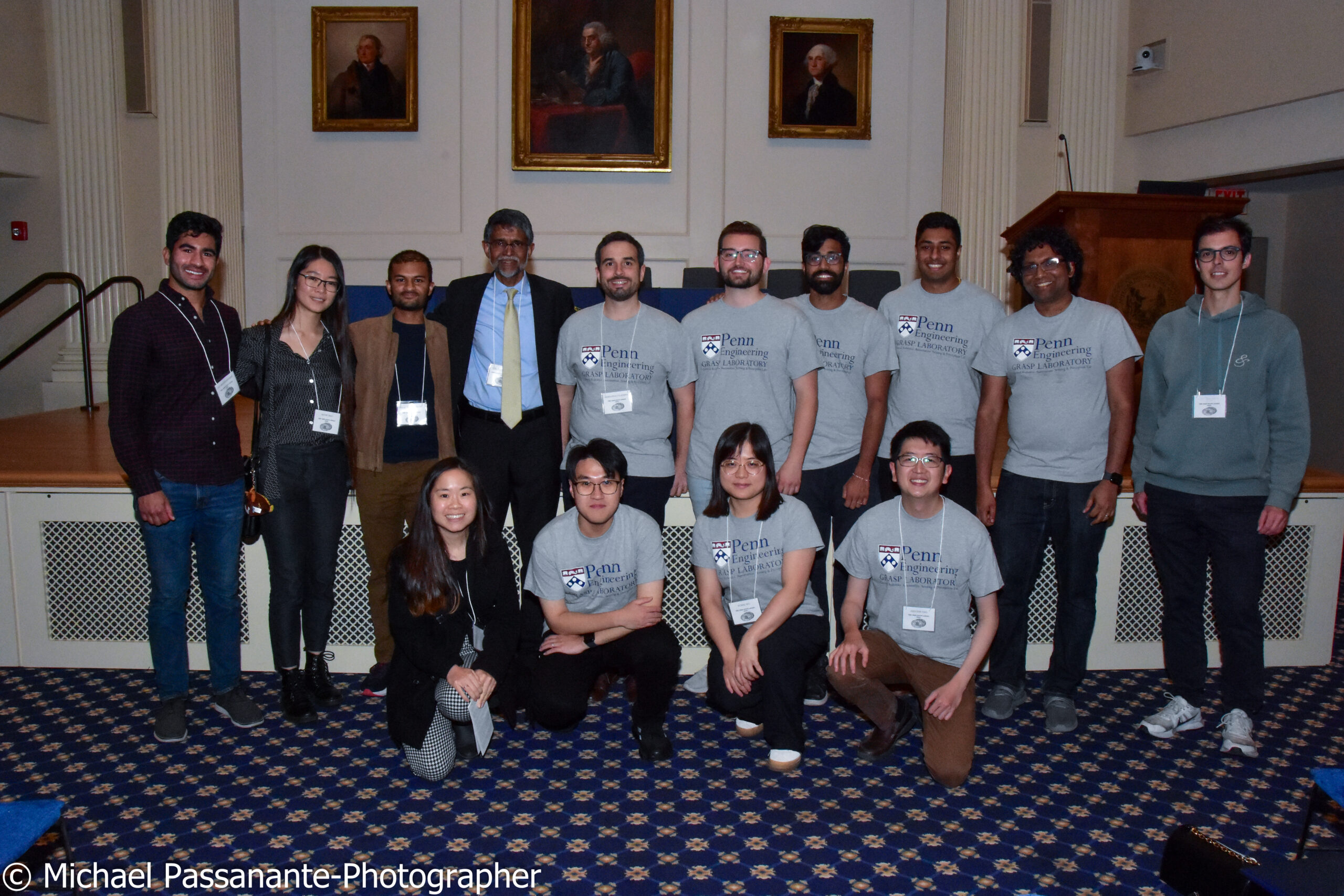
The Honorable Michael Nutter (W’79), Bernard Smalley, Vijay Kumar, Marsha Lester and George Pappas, from left.
On November 20, scientists, academics and members of the Board of Directors of City Trusts gathered at the historic American Philosophical Society in Philadelphia to honor the 2024 recipients of the John Scott Award, one of the oldest and most prestigious science awards in the United States.
Among the honorees was Vijay Kumar, Professor and Nemirovsky Family Dean of the School of Engineering and Applied Science at the University of Pennsylvania (Penn Engineering), who was recognized alongside robotics pioneers Daniela Rus of MIT and Takeo Kanade of Carnegie Mellon University.
Endowed in 1815 by Scottish chemist John Scott, the John Scott Award honors scientific achievements that contribute to the “comfort, welfare, and happiness of mankind,” in the spirit of Benjamin Franklin. Over the years, this prestigious honor has been bestowed on luminaries like Marie Curie, Guglielmo Marconi and recent Nobel laureates Katalin Karikó and Drew Weissman of Penn’s Perelman School of Medicine.
Bernard W. Smalley, President of the Board of Directors of City Trusts, praised Kumar and his fellow awardees for their visionary work: “We congratulate the 2024 winners on the potential of their research to change the world and improve people’s lives in the process.”
The Honorable Michael Nutter (W’79), the Board’s Vice President and a former mayor of Philadelphia, emphasized the degree to which the awardees embody Franklin’s legacy as an inventor, noting, “He spurred the advent of electricity and the Industrial Revolution, but it all started with this: harnessing the power of imagination.”
Marsha Lester, Christopher H. Browne Distinguished Professor in Chemistry within Penn’s School of Arts & Sciences and Secretary of the John Scott award committee, noted the impact that past awardees have had on society. “The past winners are like a Who’s Who of the prominent scholars in science, medicine and engineering,” she said.
George Pappas, UPS Foundation Professor of Transportation in Electrical and Systems Engineering and Penn Engineering’s Associate Dean for Research, introduced Kumar. “Particularly fascinating is his work of understanding how biological organisms like ants work together and then using those principles to develop algorithms for aerial robots,” said Pappas. “These robots are now being used in numerous application domains such as agriculture, manufacturing, logistics and many others.”
In his remarks, Kumar highlighted the field of robotics as being inspired by nature, emphasizing its interdisciplinary focus. “Robotics is a synthetic discipline where we create things that are exciting — there are no rules in some sense,” Kumar reflected.
He also noted that while humans have invented machines that, in narrow respects, have far outstripped human capabilities — such as traveling quickly, seeing in great detail and communicating at long distances — the ability to combine skills is a difficult-to-replicate trait, and one that his lab is focused on understanding. “We already know how to build superhuman machines, but in terms of putting things together, that’s where we lack the science,” said Kumar.

Reflecting on the arc of his research, Kumar discussed how he came to focus on nature as a model for robotic cooperation. “Fish and birds can cooperate to do things that in fact you need a group to do,” he noted. “We’re inspired by that and we want to build machines, systems of machines that can collaborate with each other.”
In closing, Kumar acknowledged the students and collaborators who have driven his work forward, remarking, “If you ask me, ‘What’s the thing I’m most proud of?’ I actually have 100 things to be proud of, and these are my doctoral students and postdocs, who are out there having the impact that they deserve to have.”
